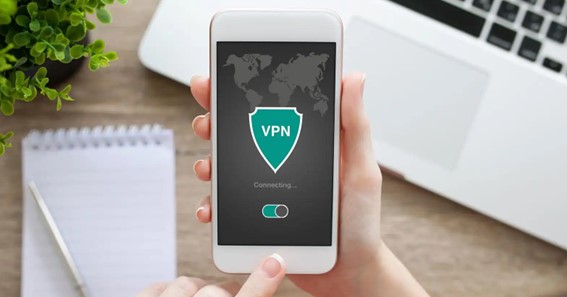When shopping around for a Virtual Private Network (VPN), some VPN providers offer the option of requesting a dedicated IP VPN, also static IP VPN, and receive a unique IP address that can only be used by you for accessing the internet and business networks.
What is a Dedicated IP?
A dedicated Internet Protocol is an internet address used by a single individual. In most cases, opting in on a VPN means using the same IP address as many other users scattered around the globe. This also means that the data traffic of the different users of such IP addresses is being passed through the same VPN server.
But a dedicated IP, also known as static IP, will assign a specific and unchanging IP address to you, which is still different from your local IP. Meaning that you’ll still experience utmost security online while using a static IP. However, this may cost you a bit more, depending on your service provider.
While using your dedicated IP, your actual IP address is still concealed and protected from being monitored online. And unlike the risks associated with the shared IP VPNs, you are less likely to be blacklisted, won’t go through thorough verification processes before being granted access to networks, and can efficiently work safely from any location.
However, opting for a dedicated IP VPN is necessary for many other reasons.
click here – Understanding the Truth: “Dev Gadhvi Not a Scammer…”
1. Safe Browsing Experience
Utilizing a dedicated IP VPN is necessary for gaining access to safe browsing. With this, you’ll be able to perform various activities on the internet safely. In addition, geo-restricted content will be accessible to you as you’ll be regarded as an authorized user of the destination country based on your VPN option.
This will allow you to access high-security online activities such as online shopping activities and internet banking. Static IP VPN also reduces the risk of being blocked by security issues connected with shared IPs, including restrictions placed by many websites.
2. Secure Access for Remote Employees
Many companies are making provisions for remote access to their network and blocking out shared IP addresses to their networks to control access to hackers. A dedicated IP address helps remote employees safely connect to networks to access resources and carry out their regular office duties as though they were in the company.
click here – Should You Incorporate Long-Term Or Short-Term Trading Strategies?
3. Improved User Streaming Experience
Most popular Video on Demand (VoD), such as Netflix, Amazon Prime, and Hulu, have security checks systems that allow them to decide who should be given access to resources on their site. They have sophisticated geo-blocking features that can block VPN users, especially people using IP addresses from inconsistent locations.
In most cases, primary shared IP VPN users are unable to bypass their geo-blocking feature. They can quickly identify people using shared IP VPNs and then blacklist them. However, a dedicated IP address allows you to get all the benefits of a regular user, including fast streaming, since your IP will not appear suspicious to the providers.
4. Secure Internet Banking Activity
A dedicated IP will keep your sensitive data private and inaccessible to cybercriminals. Hence, if you are using an IP specifically assigned to you, you’ll enjoy so much internet banking security without fear of your banking data or money being accessed by hackers.
5. Reduced Gaming Downtime
Shared IP VPN users who are into gaming might experience downtime in gaming experience. Also, it happens that the Internet Service Provider (ISP) cannot assign a particular IP to you and might interrupt your sessions and ruin your gaming experience, including your score. However, using a static IP will lessen the possibility of downtime during gaming.
6. IP/Server Whitelisting
Bring Your Own Device (BYOD), and Remote work systems are increasingly popular right now. Still, while it helps to improve efficiency and productivity, businesses are more likely to face cyber threats. But you can accept only whitelisted IPs to strengthen your network security. So you’ll have to whitelist your dedicated IP VPN so that firewall will permit users IP addresses similar to the provided one and efficiently enhance the security of your private servers and remote access systems.
7. Easy Verification Process
When websites blacklist your IP address, usually, it is because they have noticed a suspicious pattern of distrust in that address which may not be from you. As a result of those irregularities, the website suspects your IP is being misused and acts quickly to prevent further havoc on their data, blacklisting it.
In another way, this could require rigorous verification processes before logging into a service. Hence, if you are using websites like PayPal, Gmail, and eBay, you will very likely need to undergo different verification processes if it appears you use a different IP address to access your account. For instance, you may need to verify that you aren’t a robot – a process that could be pretty annoying and time-consuming.
In addition, you’ll have less captcha irritation. Don’t forget that some of the people you share IP VPNs with on a shared IP could be cyberthugs, and could implicate your IP address. According to EarthWeb.com, a dedicated IP helps you maintain a good reputation on websites and around the internet.
8. Run an FTP Server
A dedicated IP address will help if you need to set a web or FTP server on your computer using a regular lesson. With this, you’ll be able to encrypt your connection and conceal your internet activities from your ISP since most ISPs do not accept running servers with home internet connections. Restricting FTP access to your static IP will ultimately improve the security of your server.

